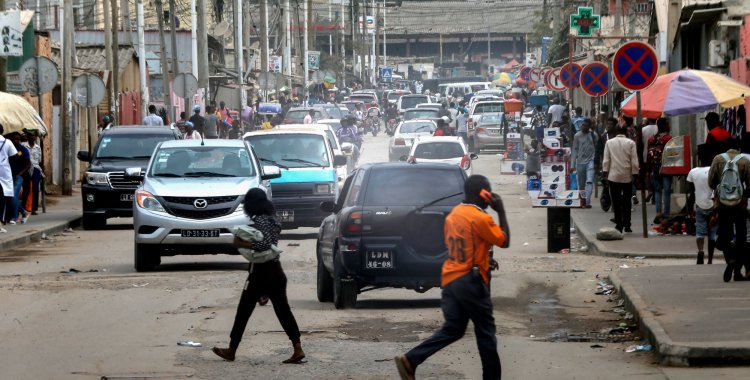Victor Duarte Lledo was speaking on Tuesday during a press conference that preceded the presentation, on Wednesday, of the report "Regional Economic Perspectives for Sub-Saharan Africa (PER-AS): A Light on the Horizon", in partnership with the National Bank of Angola (BNA).
The exchange rate in the informal market has registered an increase in the last two months, while in the official market it is static, with a difference of 34 percent, according to the Expansão newspaper.
For Victor Duarte Lledo, maintaining a flexible exchange rate is extremely important in an economy like Angola, serving as a buffer against external shocks.
According to the IMF representative for Angola, who has been in this role for two months, the international financial institution's recommendation "was never to use administrative measures or inductive measures to keep this rate under control, but rather to recalibrate at the level of macro policies , both from a monetary and fiscal point of view, in order to better combat these inflationary pressures".
The official stressed that exchange rate pressures come from an economy with high dependence on oil, affected by the reduction in production and consequently in oil exports, leading to a decrease in the supply of foreign exchange by oil companies.
Another factor of great exchange rate pressure in Angola, indicated Victor Duarte Lledo, has to do with the resumption of payment of external debt, which forced the national treasury, another major supplier of currency to the market, to prioritize debt service.
According to Victor Duarte Lledo, in the case of Angola, the IMF's recommendations have had good results, with "the fact that international reserves remain at comfortable levels" being a great demonstration.
"Obviously another constraint where there is a very high level of dependence on imports of consumer goods, as [happens in] Angola, is the impact that exchange rate depreciation has through the pass-through to domestic prices", he highlighted.
Victor Duarte Lledo stated that the IMF will reformulate and better evaluate its position, in the next evaluations of article four, which should begin in the next two weeks of November.
"[They] aim to make this more holistic reassessment from the point of view of various policies, but will continue to articulate a flexible exchange rate as fundamental in this process of macroeconomic stabilization for Angola", he stressed.
Communication between the Angolan central bank and the Ministry of Finance regarding the availability and supply of currency on the market is very important, also considered the person responsible for the IMF for Angola.
"It is important that they generate expectations in relation to this, so that the price is formed in a smooth way and so as not to give rise to speculation", highlighted Victor Duarte Lledo, adding that this is an area that in the next discussions the institution will "engage with the central bank", to see how this communication with the markets can be improved.
The next assessment, according to the person responsible, will also look at the issue of under or over appreciation of the exchange rate, arguing that policies be calibrated to avoid these two scenarios.







